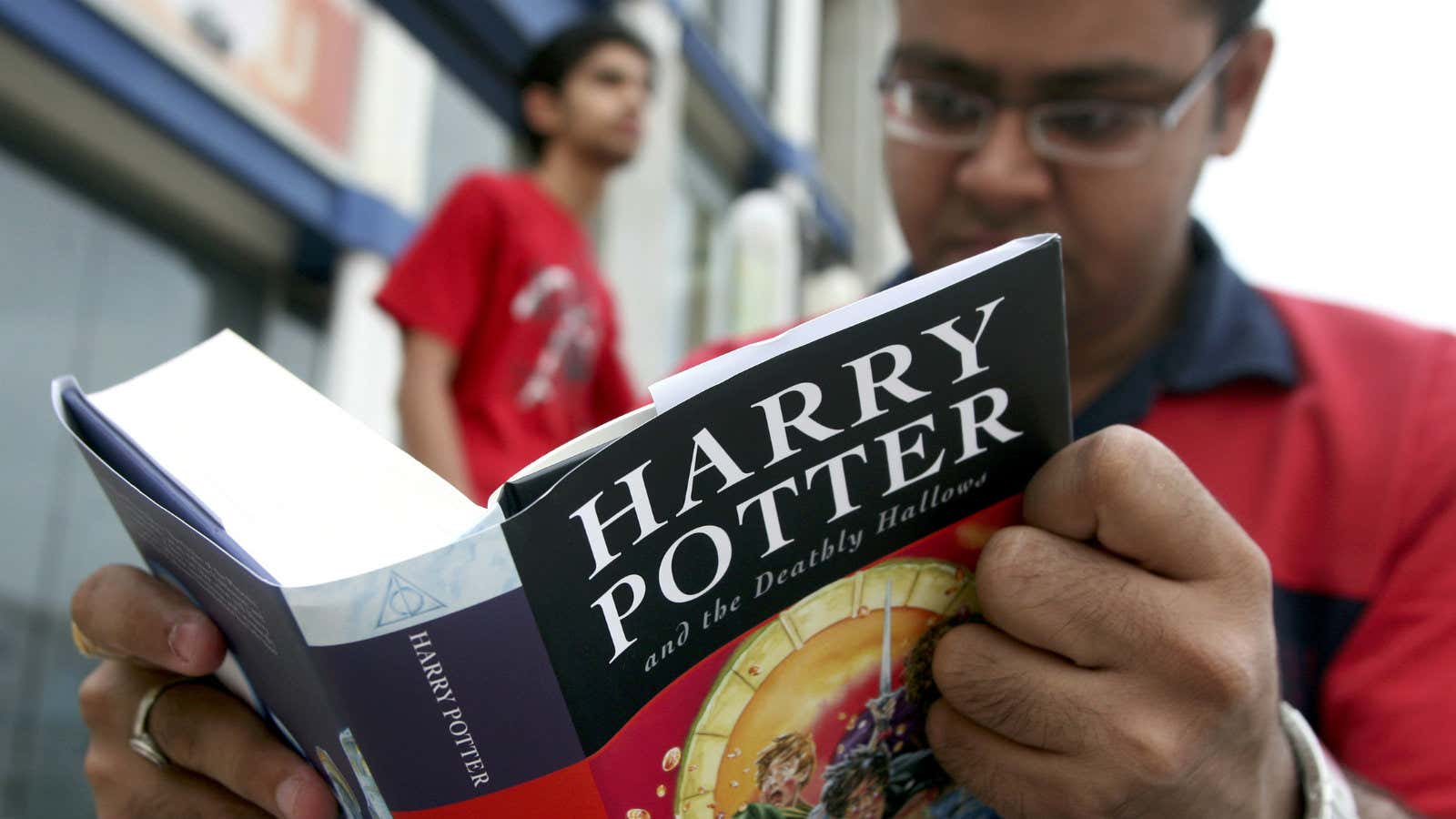For most people, reading JK Rowling’s Harry Potter series is the ultimate escapism. But a professor at Kolkata’s West Bengal National University of Juridical Sciences (NUJS) believes the wizards’ magical world isn’t really all that different from ours.
So, this winter, Shouvik Kumar Guha is teaching a course on the role and rule of law in the Potterverse for around 40 undergraduate law students in their fourth and fifth years at the university.
“If you look into the Harry Potter universe, there are a lot of views about the limitations of law and institutions, and it talks about a lot of things: an undemocratic form of government, a judiciary that is not independent, citizens being deprived of due process of law, and so on and so forth,” Guha told Quartz. “There’s many scenarios with which allegorical situations can be found in the real world.”
As a relatively non-controversial fictional universe, Harry Potter’s world provides an advantage, Guha says: It allows students to apply their technical legal knowledge without the influence of real world political leanings that make can make contemporary issues so polarising.
In the 45-hour course, An Interface between Fantasy Fiction Literature and Law, students will look at topics such as legal traditions and institutions, including the bureaucracy of the “Ministry of Magic”; crimes and punishments, notably the “Unforgivable Curses” and the “Wizengamot Trials”; social values, and class rights, especially the marginalisation of “Werewolves,” “Giants,” “Centaurs,” “Mudbloods,” and “Squibs.”
“The picture that Rowling paints of the government in Potterverse is not pretty, yet the critique that she aims at it in multiple levels, ranging from the functions of the government to its nature and the bureaucracy busy in running it, often resonates with the readers in comparison to their own governments in the real world,” Guha writes in the course outline. “That is where the boundary between reality and magic begins to blur and that is perhaps one of the strongest appeals that Potterverse holds.”
Guha came up with the idea for the course after realising that there weren’t enough opportunities for students to think outside the box within the confines of the regular law school curriculum.
“Our law school offers 50 intensive technical courses, but I thought we are not doing everything we can and should to encourage creative thinking in students,” Guha said. A law course on Harry Potter isn’t completely out of the blue, though, he adds. It falls within the subset of the discipline of law and literature, which he says is an established field of jurisprudence.
Students will have to write essays and present their assignments to their class, but an alternative option to perform magic tricks for 15 minutes and 20 marks is also offered, according to the course outline. There’s no escape from an end-of-semester exam, though, and Guha warns that while the course is an experiment, it certainly won’t be easy.
NUJS is of course not the first university to feature Harry Potter in its curriculum. From Durham University to Indiana State to Yale, institutions around the world have looked at various aspects of the magical universe, including its ethics and culture, besides its popularity and place in the the modern world. But the course in Kolkata marks a refreshing change from the usual form of university education in India, where tightly regimented curricula and rote learning remain the norm.
That possibly explains why it’s become a bit of a sensation, both inside the university and beyond. Guha says he’s surprised by all the attention, and is getting requests from plenty of other students to join, though limited resources mean that only a lucky 40 will get to participate this time round.
